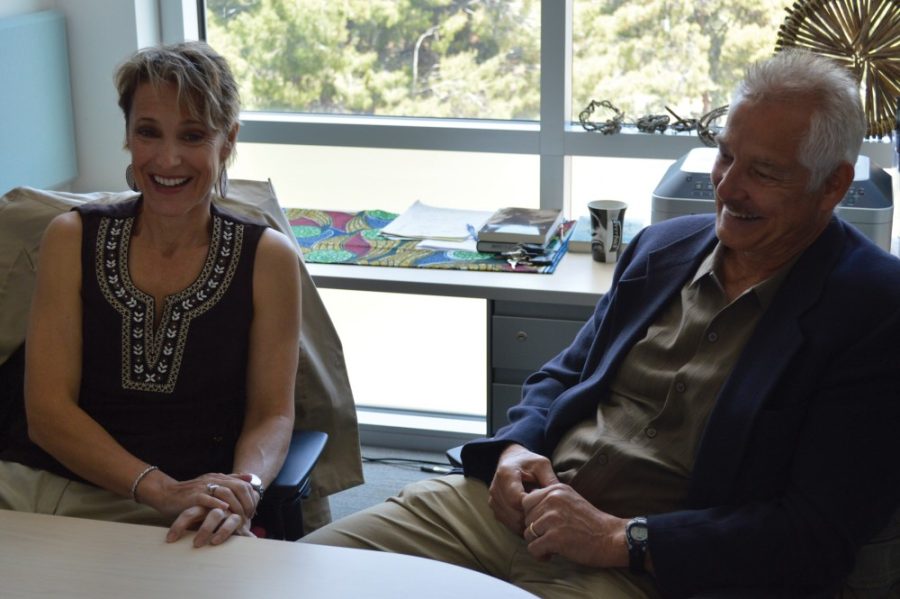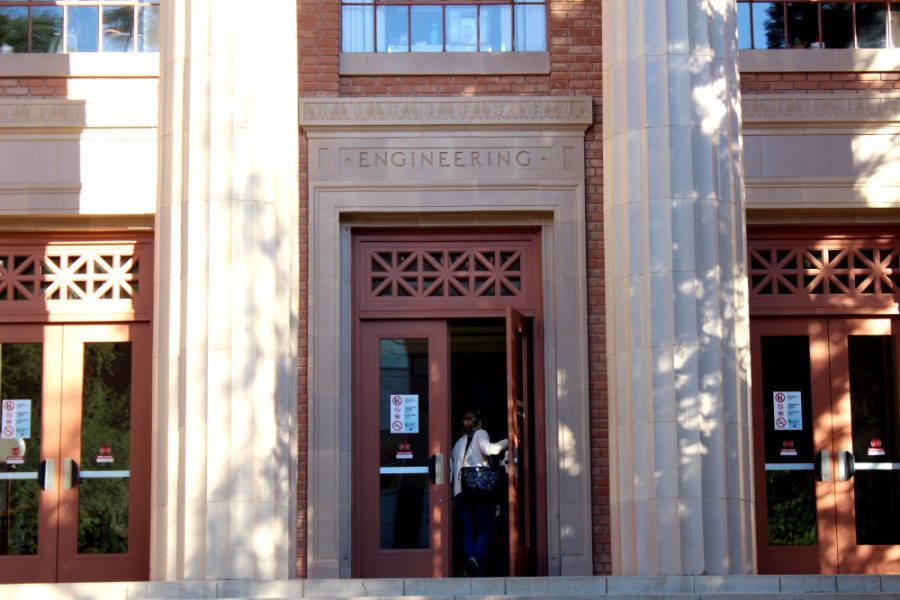Two UA professors are promoting the importance of the father figure, both in human development and development in other species, through a new course.
Research on fathering is one of the focuses within the McClelland Institute for Children, Youth and Families and its Fathers, Parenting and Families Initiative. It is also a developing aspect in education, demonstrated by a UA course called “Men, Fatherhood and Families: Biocultural Perspectives,” taught by Dieter Steklis, a professor at UA South, and his wife Netzin Steklis, a family and consumer sciences lecturer.
The course teaches students how father figures influence the behavior of children and, through the course, students learn to become experts on analyzing human behavior and decoding mannerisms of the opposite sex.
Dieter and Netzin began teaching the course last semester when it was first offered as an official general education course. The class was initially presented a year and a half ago as an experimental course, which was offered only one semester. From there it was submitted to be a general education course and is now offered to all undergraduate students at the UA.
The class is one of a kind, according to Bruce Ellis, the endowed chair in Fathers, Parenting and Families at the Norton School of Family and Consumer Science.
“This class is unique because it’s not about mothering,” Ellis said. “You come and take the family studies curriculum and there’s dozens of classes you can take about mothering. This class is meant to be different.”
Dieter and Netzin have been researching social behavior of mountain gorillas in Rwanda for the past 20 years. Prior to that, they spent time observing social behavior of other species, such as apes and monkeys, in South America. The professors have dedicated themselves to their research and, from this research, teaching students the importance fathers play in human and animal development. A father impacts the building of confidence and self-awareness within children.
“We love to see students have this brand new perspective that they’ve never thought of their own behavior and the behavior of their fellow students in a whole new way,” Netzin said. “It’s like wearing those new goggles.”
Some students commented on how the course affected their relationships with their father figures.
“It helped me understand relationships better and then it really helped me build a close relationship with my dad,” said Monique Timmons, a preceptor for the course and a psychology junior. “He didn’t show a lot of direct care for me growing up, but after realizing he showed a lot of indirect care, I was able to see he helped me more than I thought. So I was able to let go of some of the resentment I had for him and it brought us closer.”
The 150 person class is taught by Dieter and Netzin. The structure of the course has also resulted
in positive feedback from students.
“It’s probably been one of the highlights of my college career just because they’re very wonderful people,” said Wendy Craft, a family studies and human development senior. “They‘re very knowledgeable and they’re excellent teachers. It was definitely one of my favorite courses … it really opens your mind to help you think about your life in a different way, really to help analyze mate selection.”
Ellis said he encouraged Dieter and Netzin to teach the course because of their experience and
passion for research in primatology and the importance that father figures have.
“It’s a really unique class about fathering and I think there’s very few classes like it at any other university,” Ellis said. “It seems to have gotten off to a great start.”









